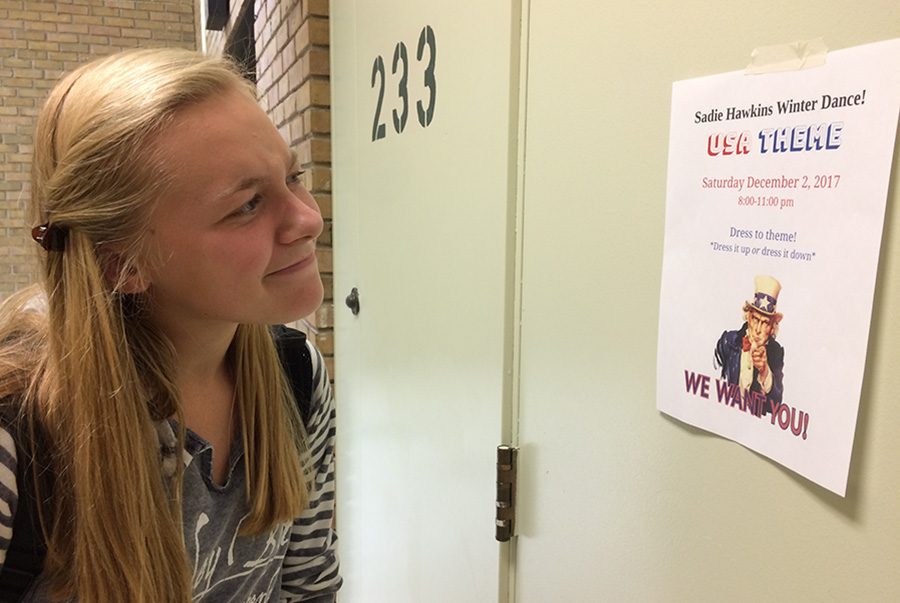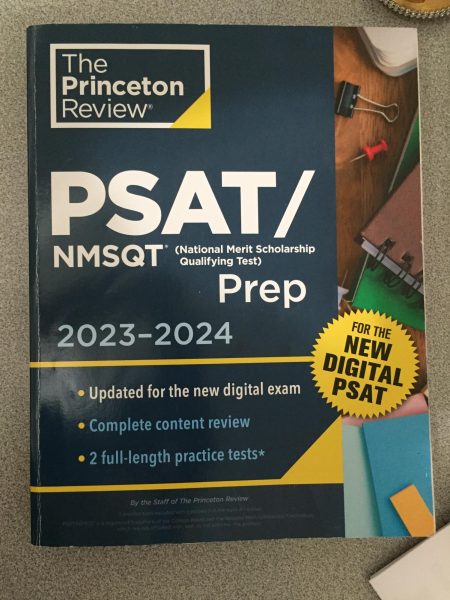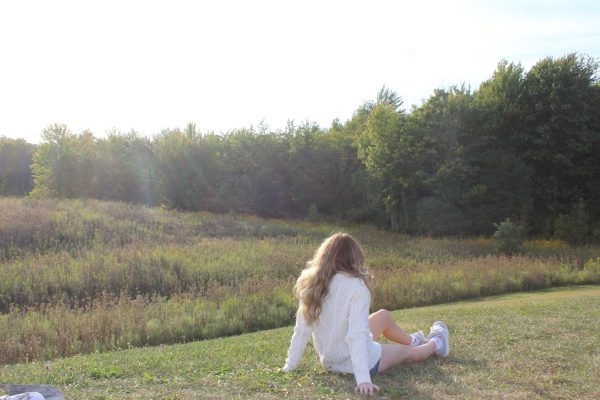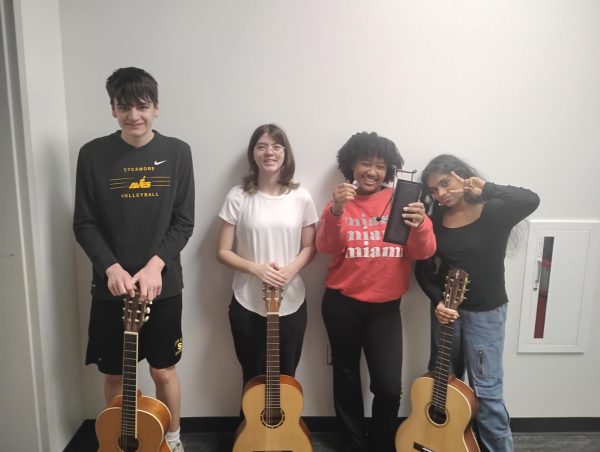Sadie Hawkins dance raises questions
HMM. Sophomore Kaylee Combs ponders the merits of a Sadie Hawkins dance as she reads a flyer advertising the SHS’ USA-themed version. In the past, Hawkins’ story has been celebrated with an annual Sadie Hawkins Day. “After learning the origins of the name, I am not sure about the concept. In this day and age, we should be able to just call it a Winter Formal or a dance and not assume that a certain gender is asking the other,” Combs said.
It is on the walls, in your inbox, and on the lips of the student sitting across from you at lunch. On Sat., Dec. 2, Student Council will hold a USA-themed Sadie Hawkins winter dance, thus reviving an old event.
Many students have thus far discerned that, by definition, girls ask guys to a Sadie Hawkins dance.
Even so, the celebration’s origins are lesser known. Hawkins was not a real person but a fictional character first seen in cartoon artist Al Capp’s Li’l Abner‘s comic strip on Nov. 15, 1937.
As the story goes, Hawkins’ (whom Capp’s comic describes as “the homeliest gal in all them hills”) father, the most influential man in the fictional town of Dogpatch, Kentucky, was concerned that his 35-year-old daughter would never find someone to marry.
In order to resolve this dilemma, Hawkins’ father arranged for all of Dogpatch’s eligible bachelors to engage in a foot race with his daughter chasing after them. The first man whom Hawkins caught would be legally obligated to become her husband.
“The whole reason for which it started is pretty sexist, and I’m not a big fan of it. I know it’s a really old concept, but we are still using it today,” said Debasmita Kanungo, 10.
Capp’s characters made Hawkins’ special day an annual event, which Capp maintained in the comic strip for 40 years. The event was quickly adopted by schools and groups across the nation.
“I would participate in it because I think it would be fun just for once for only the girls to ask. Still, girls don’t need a designated dance to feel like they can ask guys,” Kanungo said.
Modern proponents of the event claim that its concept empowers women; however, students like Kanungo are unsure. Some who agree with her believe that the notion and its roots enforce ignorant gender roles.
“I just don’t like the whole story; it makes me feel annoyed. In 2017, we could be more progressive than this,” Kanungo said.
Your donation will support the student journalists of Sycamore High School. Your contribution will allow us to purchase equipment and cover our annual website hosting costs.




![Mock Trial members from Gold and Green team last year pose for a picture in front of the OCLRE building in Columbus. "We all put in so much work [last] year. I know [this] year we’ll come back improved and ready to win!” said Ogunbodede.](https://shsleaf.org/wp-content/uploads/2025/10/IMG_4121-600x411.jpg)


